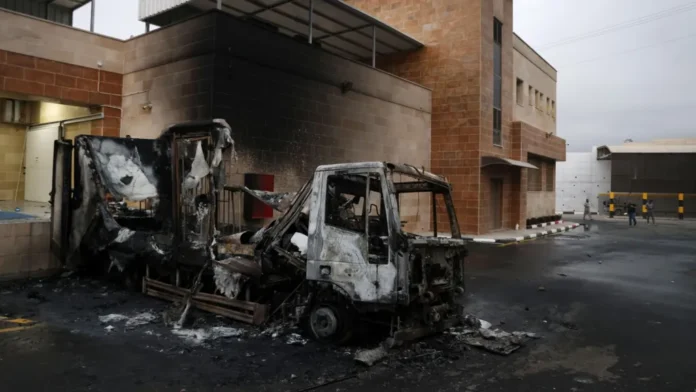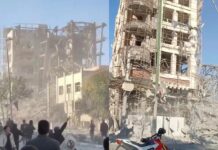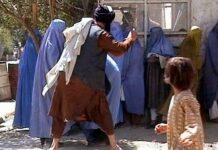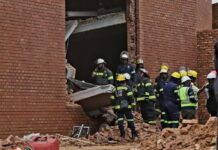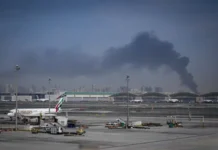Written by Were Kelly
Masked Israeli settlers have assaulted a group of Palestinian olive harvesters, international activists, and journalists in the northern West Bank, injuring at least 20 people in the latest of a wave of attacks aimed at disrupting the vital annual harvest.
The incident, which took place on Thursday near the villages of Beita and Burin south of Nablus, saw settlers armed with sticks and rocks attacking the group, leaving several with broken bones and one Reuters journalist with a head injury.
The olive harvest is a cornerstone of the Palestinian rural economy and a deep-rooted cultural tradition. However, for years, farmers working land close to Israeli settlements have faced intimidation and violence.
According to Palestinian monitoring groups, there have been over 150 such attacks on harvesters in 2025 alone, resulting in the damage or destruction of more than 4,200 olive trees.
A 13-year-old Palestinian boy was among those injured on Thursday and was reported to be in a coma from tear gas inhalation, though it was unclear which side deployed the gas.
Palestinian farmer Samir Hamayel, whose family has worked the land for generations, said, “This is systematic terror. They want to drive us from our land and destroy our livelihood.”
The Israeli military issued a brief statement saying, “The incident is under review. Forces were deployed to the area to separate the sides.”
The United Nations was less equivocal. A spokesperson for the UN Human Rights office stated, “We condemn this aggression in the strongest terms. Settler violence is a primary driver of insecurity and displacement in the West Bank, and it must be halted and investigated.”
The broader context is one of escalating tension and de facto annexation. Since the war in Gaza began in October 2023, settler attacks have skyrocketed, with over 7,000 incidents documented by human rights groups.
The Israeli government has recently approved the construction of 5,667 new homes in settlements, a move considered illegal under international law.
This environment of impunity, coupled with the expansion of settlements, has made vast tracts of privately owned Palestinian farmland inaccessible or too dangerous to cultivate, strangling rural communities and fuelling a cycle of resentment and violence that shows no sign of abating.
Sources: Haaretz, Al Jazeera.









